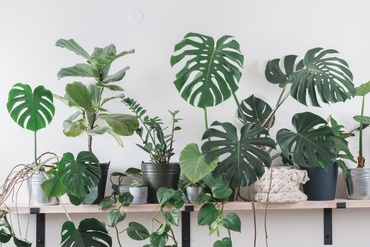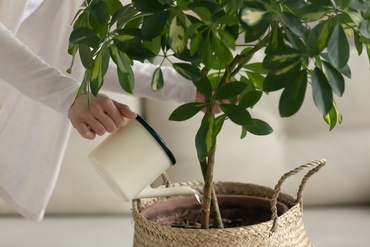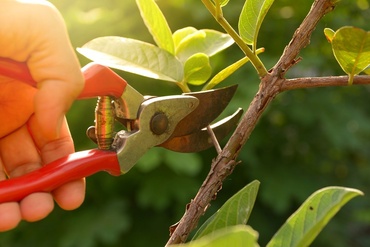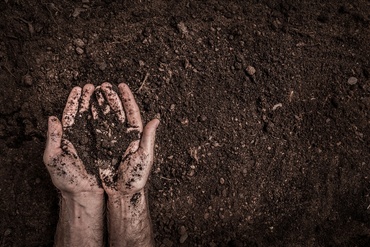Basic Gardening Terms Often Used
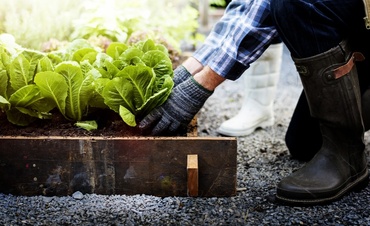
When you’re new to gardening and looking for tips, something that may be holding you back is the overload of new information. What exactly do you need to know, which type of plants do you choose, and what are the products that are often mentioned? We’ll highlight some of the often used terms below.
What Are Annual Plants?
An annual plant is any plant that completes its life cycle in one single growing season. This includes many wildflowers, weeds, vegetables, garden flowers, and vegetables. Only the dormant seed survives from one growing season to the next.
What Are Perennial Plants?
A perennial plant is a plant that lives for more than 2 years. Usually, they bloom for one season per year, but there are also reblooming and long-blooming perennials. Examples of popular perennials are Dahlias, Lavender, Salvia, and Asters.
What Does Shrub Mean?
A shrub is a woody plant that has several stems and is usually less than 10 feet tall. The difference between shrubs and trees is that shrubs tend to have a more rounded shape. Shrubs provide structure and colour in garden designs, no matter the style of the available space. There are many options, from small borders to big statement shrubs, as the number of different shrubs is very big. Some popular shrubs are Skimmia Japonica, White Hebe, and Rhododendrons.
What Is the Meaning of Herbaceous Plants?
An herbaceous plant is a plant that has non-woody stems. The above-ground growth almost fully dies back in winter, but the underground parts such as roots and bulbs may survive. Popular herbaceous plants include Garden Phlox, Peonies, and Salvia.
What Types of Plants are Tropicals?
Tropical plants make good house plants because they are used to warm environments. In a container, they can grow and flourish with the right conditions when it comes to water, humidity, and light. Some popular tropicals are Alocasia Amazonica, Ficus Lyrata, and Philodendron.
What Is the Difference Between Different Light Levels?
When you buy new plants, you’ll often find a label that mentions the optimal light level for the plant, such as shade, semi-shade, or full sun. We’ll highlight the most important aspects of these light levels below:
- Shade: this can be any place that receives no natural sunlight, or that’s 7 or more feet away from the windows.
- Semi-shade: the optimal spot would be sheltered from the hot afternoon sun, with a maximum of 4 hours of sunlight.
- Full sun: a light spot with direct light that shines straight onto your plants. Usually, south and west-facing windows will get the most direct sunlight. Plants that need direct light will need at least 5 hours of sunlight.
What Is the Difference Between Soluble and Granular Slow-Release Fertilizers?
If you’re looking for a new fertilizer, you may come across several types without really knowing the differences, benefits, and the best conditions to use them.
- Water-soluble fertilizer: this is the type of fertilizer that is available in crystal form to be dissolved in water, or in liquid form to be diluted in water. This is very easy to apply, and easy to blend. The nutrients are quickly available to the plants, which gives a quick result if they are undernourished.
- Granular slow-release fertilizers: this fertilizer is dry-packed in granules and usually contains standard blends of the most commonly needed nutrients. The granule releases its nutrients over a period of 2 to 3 months, so the plants require fewer feedings with this fertilizer.
What Is Mulch and How to Use It?
Mulch is any material that is spread over the surface of the soil as a covering. This can be made of organic and synthetic materials. Mulch is used to retain moisture in the soil, suppress weeds, prevent frost heaving in winter, and besides all that, it makes the garden bed look more attractive. Organic mulch can be made of pine needles, grass clippings, or shredded leaves. Synthetic mulch can be made of black plastic or gravel.
More Advice on Gardening? Visit Our Stores
Are you looking for an explanation of terms that we didn’t mention in this article? Reach out to one of our team members in our stores and we will be happy to help you out!

